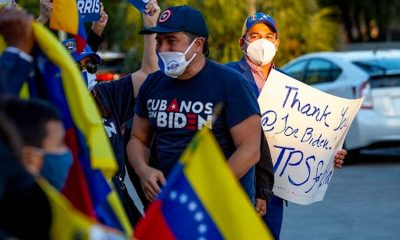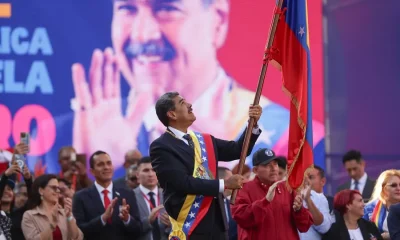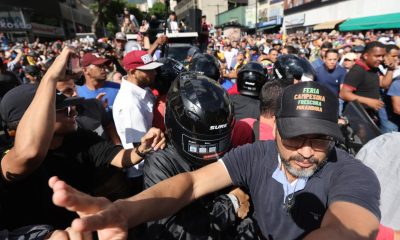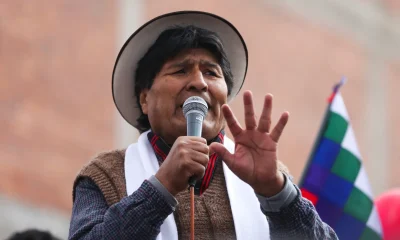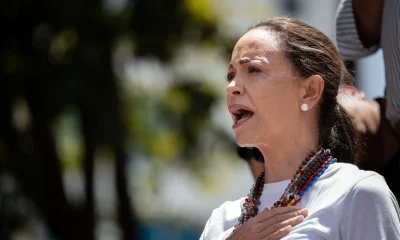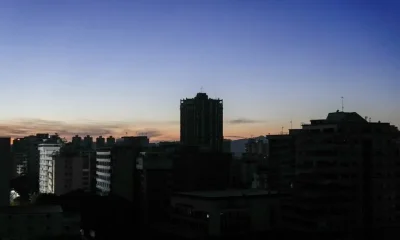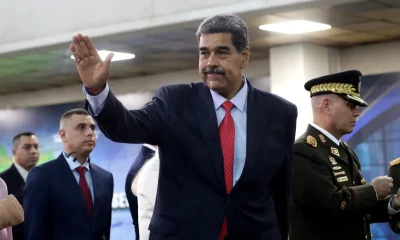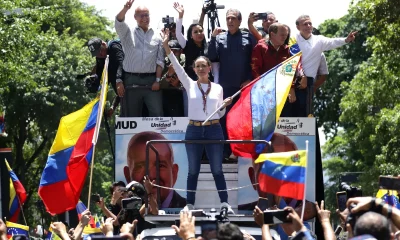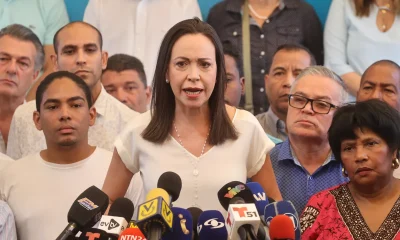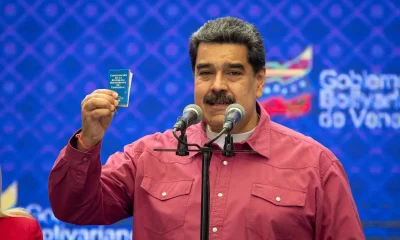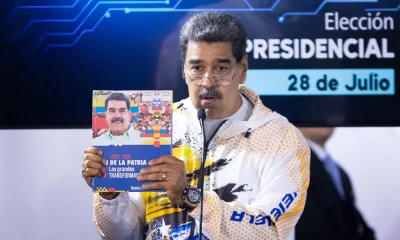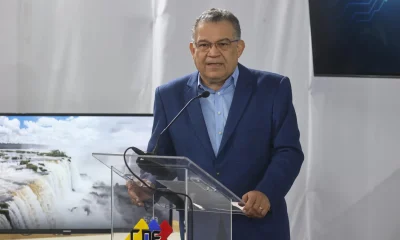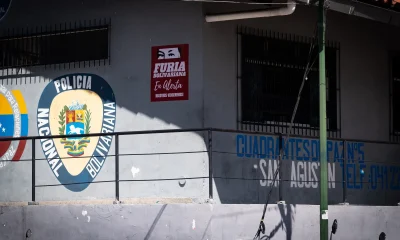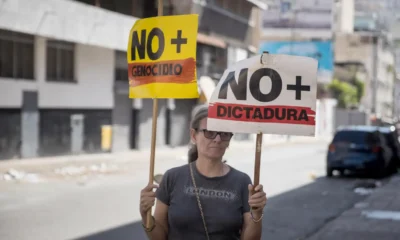International
Mujica says that in Venezuela “it seems that they play democracy but they don’t play”
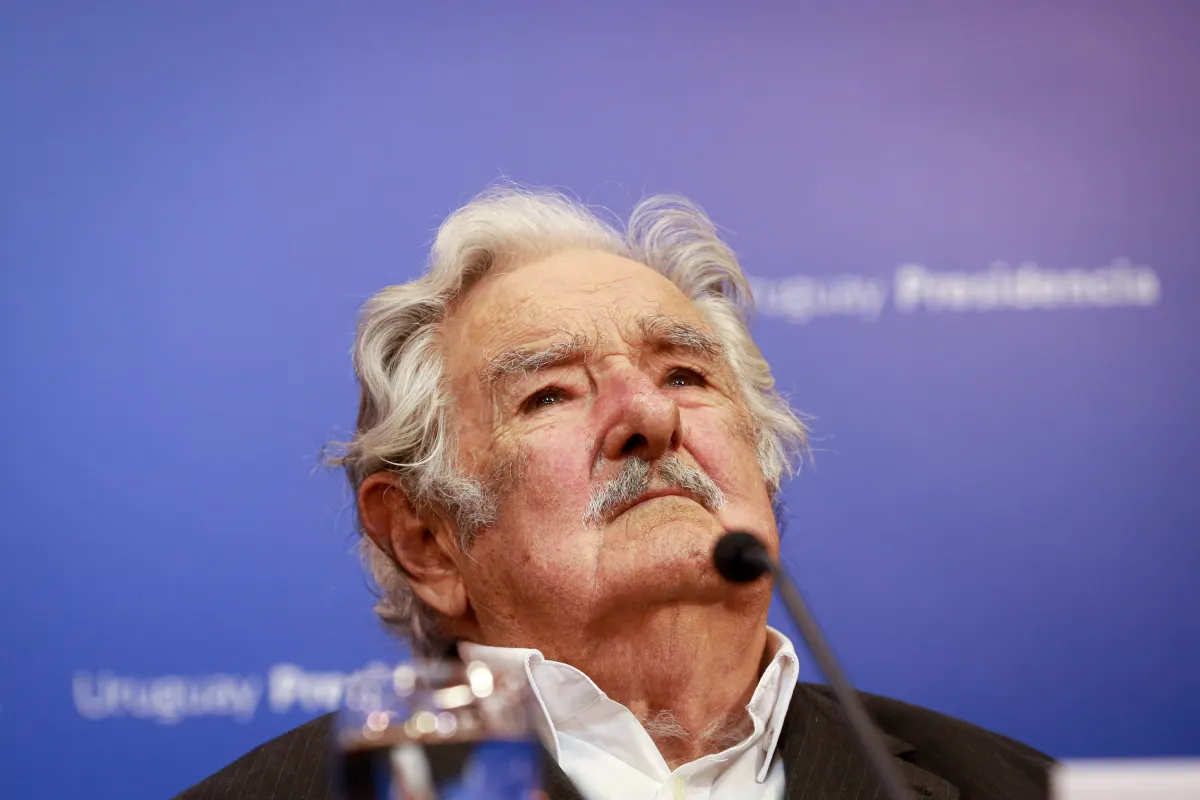
The leftist and former Uruguayan president José ‘Pepe’ Mujica said that the situation in Venezuela is “unfortunate” because in the Caribbean country “it seems that they play democracy but they do not play democracy.”
Within the framework of an act of its political force, the left-wing coalition Frente Amplio (FA), and consulted about the concern expressed by governments of various Latin American countries after the disqualification of the opposition candidate Corina Yoris, Mujica declared to the press that “Venezuela is regrettable.”
“It seems that they play democracy but they do not play democracy,” he said, who in turn warned that it is “mistaken” to use the term dictatorship to refer to the government of Nicolás Maduro with a comparison with countries in the Middle East.
“The term dictatorship is ambiguous, what’s in Afghanistan? What do the Taliban have? Are they dictatorships or are they theocracies? And what is there in Saudi Arabia? That is, we use the terms without specifying,” said the former guerrilla who ruled Uruguay between 2010 and 2015.
To this he added that “what is clear is that in Venezuela there is no elementary respect for the opposition and that disturbs and creates a situation that cannot be called democracy.”
Mujica’s statements come after the pre-candidate for the FA he supports for the internal elections in June was criticized by official pre-candidates for saying that the disqualification of candidates in Venezuela is like “cheating” in a horse race for not letting everyone run.
The Uruguayan vice president, Beatriz Argimón, said last Thursday that in Venezuela there was “a process of recrudescence in what is the dictatorship” to which she defended the decision of the president, Luis Lacalle Pou, to maintain an ambassador in the Caribbean country.
Earlier, the Foreign Minister, Omar Paganini, assured that Venezuela is consolidating itself as “a dictatorship” and that its electoral process “has been completely distorted.”
Paganini thus stressed the importance of the statement in which Uruguay expressed, together with Argentina, Costa Rica, Ecuador, Guatemala, Paraguay and Peru, its “serious concern” in the face of the “persistent impediments” in the registration of presidential elections before the National Electoral Council.
The presidents of Brazil, Luiz Inácio Lula da Silva, and France, Emmanuel Macron, also sent a strong message on Thursday to Maduro, whom they urged to hold democratic elections “with the participation of all” after describing as “serious” the disqualification of Yoris, chosen to replace the already banned María Corina Machado.
International
Thousands rally nationwide against Trump’s threat to U.S. democracy

Thousands of protesters gathered on Saturday (April 19, 2025) in major cities like New York and Washington, as well as in small communities across the United States, in a second wave of demonstrations against President Donald Trump. The crowds denounced what they view as growing threats to the country’s democratic ideals.
In New York City, demonstrators of all ages rallied in front of the Public Library near Trump Tower, holding signs accusing the president of undermining democratic institutions and judicial independence.
Many protesters also criticized Trump’s hardline immigration policies, including mass deportations and raids targeting undocumented migrants.
“Democracy is in grave danger,” said Kathy Valyi, 73, the daughter of Holocaust survivors. She told AFP that the stories her parents shared about Adolf Hitler’s rise to power in 1930s Germany “are happening here now.”
In Washington, demonstrators voiced concern over what they see as Trump’s disregard for long-standing constitutional norms, such as the right to due process.
International
ACLU seeks emergency court order to stop venezuelan deportations under Wartime Law

The American Civil Liberties Union (ACLU) on Friday asked two federal judges to block the U.S. government under President Donald Trump from deporting any Venezuelan nationals detained in North Texas under a rarely used 18th-century wartime law, arguing that immigration officials appear to be moving forward with deportations despite Supreme Court-imposed limitations.
The ACLU has already filed lawsuits to stop the deportation of two Venezuelan men held at the Bluebonnet Detention Center, challenging the application of the Alien Enemies Act of 1798. The organization is now seeking a broader court order that would prevent the deportation of any immigrant in the region under that law.
In an emergency filing early Friday, the ACLU warned that immigration authorities were accusing other Venezuelan detainees of being members of the Tren de Aragua, a transnational criminal gang. These accusations, the ACLU argues, are being used to justify deportations under the wartime statute.
The Alien Enemies Act has only been invoked three times in U.S. history — most notably during World War II to detain Japanese-American civilians in internment camps. The Trump administration has claimed the law allows them to swiftly remove individuals identified as gang members, regardless of their immigration status.
The ACLU, together with Democracy Forward, filed legal actions aiming to suspend all deportations carried out under the law. Although the U.S. Supreme Court recently allowed deportations to resume, it unanimously ruled that they could only proceed if detainees are given a chance to present their cases in court and are granted “a reasonable amount of time” to challenge their pending removal.
International
Dominican ‘False Hero’ Arrested for Faking Role in Nightclub Collapse That Killed 231

A man identified as Rafael Rosario Mota falsely claimed to have rescued 12 people from the collapse of the Jet Set nightclub in Santo Domingo—a tragedy that left 231 people dead—but he was never at the scene.
Intelligence agents in the Dominican Republic arrested the 32-year-old man for pretending to be a hero who saved lives during the catastrophic incident, authorities announced.
Rosario Mota had been charging for media interviews in which he falsely claimed to have pulled survivors from the rubble after the nightclub’s roof collapsed in the early hours of April 8, during a concert by merengue singer Rubby Pérez, who was among those killed.
“He was never at the scene of the tragedy,” the police stated. The arrest took place just after he finished another interview on a digital platform, where he repeated his fabricated story in exchange for money as part of a “media tour” filled with manipulated information and invented testimonies.
“False hero!” read a message shared on the police force’s Instagram account alongside a short video of the suspect, in which he apologized: “I did it because I was paid. I ask forgiveness from the public and the authorities.”
-

 Central America5 days ago
Central America5 days agoPetro questions Ecuador’s vote, cites reports of military control and arrests
-

 International4 days ago
International4 days agoArsenal stun Real Madrid at the Bernabéu to reach Champions League semifinals
-

 International3 days ago
International3 days agoDominican ‘False Hero’ Arrested for Faking Role in Nightclub Collapse That Killed 231
-

 Central America3 days ago
Central America3 days agoNicaraguan Exiles to Mark 7th Anniversary of 2018 Protests with Global Commemorations
-

 International4 days ago
International4 days agoBogotá residents line up for yellow fever vaccine amid national alert
-

 International2 days ago
International2 days agoACLU seeks emergency court order to stop venezuelan deportations under Wartime Law
-

 International4 days ago
International4 days agoDeSantis’ immigration crackdown sparks alarm in Venezuelan Communities in Doral
-

 Central America2 days ago
Central America2 days agoUN complaint filed against Costa Rica over detention of migrant children
-

 International4 days ago
International4 days agoMexico refuses to restore ties with Ecuador while Noboa remains in office
-

 International15 hours ago
International15 hours agoThousands rally nationwide against Trump’s threat to U.S. democracy
-

 International5 days ago
International5 days agoColombia: Search continues for missing limb of italian scientist found dismembered




















